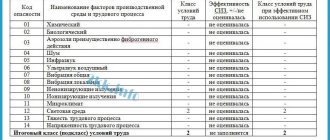An employer may enter into various types of employment contracts, depending on the specifics of the employment or the nature of the work. When choosing the type of contract, it is important to follow a number of rules so as not to come to the attention of labor or tax inspectors.
Types of employment contracts according to their duration are divided into open-ended - for an indefinite period, and fixed-term - for a certain period of not more than five years.
When to conclude which agreement?
According to general rules, an employment contract is concluded for an indefinite period. This type of document is suitable for all categories of persons, including minors, disabled people, and foreign citizens.
If the document cannot be concluded for an indefinite period, a fixed-term employment contract is drawn up, which describes the working conditions and other features of the relationship between the parties.
If there are no legal grounds for establishing the validity period of the contract, it may be declared illegal, and the organization may be required to enter into an open-ended employment contract. When choosing the type of contract according to the terms, you need to take into account that you cannot oblige the employee to sign a temporary employment contract - any contract is concluded by agreement of the parties.
A fixed-term employment contract is concluded under the following circumstances:
Circumstances under which this type of contract is mandatory, for example:
- to perform predetermined work;
- for sending abroad;
- during the replacement of an employee.
Circumstances under which the employer has the right to enter into this type of contract , for example:
- with part-time workers;
- with pensioners;
- with creative workers.
By agreement of the parties, employers have the right to conclude a fixed-term employment contract - small businesses (including individual entrepreneurs), the number of employees of which does not exceed 35 people, and in the field of retail trade and consumer services - 20 people.
Under a fixed-term employment contract, workers can be hired by companies, entrepreneurs, or individuals who do not have individual entrepreneur status. The term of a fixed-term employment contract does not exceed five years.
Probationary period for temporary workers
An important question: does the employer have the right to establish a probationary period for temporary employees. The answer is given by Art. 70 Labor Code of the Russian Federation:
- if the cooperation lasts less than 2 months, then testing the employee is prohibited;
- if the agreement is valid for from 2 months to six months, then the employer is allowed to introduce a probationary period of no longer than 2 weeks;
- if the industrial relationship is planned for a longer period (6 months or more), the probationary period can last no more than 3 months (for managers - no more than 6 months).
What needs to be included in a fixed-term employment contract
The unified form of the contract is not approved by law; the employer develops it independently.
The contract with the employee includes all important terms of the relationship.
Mandatory information that a fixed-term employment contract must contain:
- place of work;
- labor functions;
- work start date;
- contract time;
- grounds for concluding the contract;
- conditions determining the nature of the work;
- working conditions in the workplace;
- payment under a fixed-term employment contract;
- work and rest schedule;
- if the work is dangerous or harmful - guarantees and compensation;
- conditions of social insurance of the employee.
Additional conditions that should be included in the contract:
- duration and conditions of testing upon hiring;
- non-disclosure of trade secrets.
The employment contract is concluded in writing, in two copies. Each copy is personally signed by both parties, and each party must retain a copy of the agreement.
Vacation for seasonal employees and part-time employees
A person with a short-term work contract has the same rights and social guarantees as other workers. He is also entitled to regular paid leave, and retains the right to additional leave and extended leave at his own expense (if provided by law).
According to current rules, the duration of basic paid leave varies depending on how much the person worked. That's why:
- if the contract is concluded for a period of up to 2 months or involves the performance of seasonal work, then the employer is obliged to provide the employee with 2 days for each month worked;
- if a person works under a short-term contract for more than 2 months and the work is not related to the season, then the duration of paid leave is calculated for him based on 2.33 days of rest for each month worked;
- if the industrial relationship lasts more than a year, then the minimum paid leave for an employee is 28 calendar days for 11 months of work, excluding non-working holidays established at the federal and regional levels.
However, sometimes, due to the short duration of industrial relations, it is not possible to provide an employee with time to rest. In this case, the parties agree on compensation for the required days of rest, based on the amount of wages received on the day.
Vacation for a fixed-term employment contract
Working under a fixed-term employment contract, an employee has the right to annual paid leave of standard duration - 28 calendar days. For workers who work for a short period of time, for example, temporary, seasonal workers, the calculation of vacation has a number of features:
- if the employee worked for less than half a month, then leave is not granted for this month;
- if more than half a month has been worked, then two days of vacation are due for this month;
- if at the time of dismissal of the employee the vacation has not been spent, the employer pays him monetary compensation;
- It is possible to provide leave with subsequent dismissal.
Termination procedure
If the parties decide to terminate an existing fixed-term contract before the end of its period, then the usual termination procedure provided for open-ended contracts will apply.
If the initiative for dismissal comes from the employee, he must send notice two weeks before the expected date, and then terminate the employment agreement of his own free will.
However, labor law provisions provide an exception for the situation when a contract is concluded with an employee for a period of up to two months. In this case, the warning period is three days.
When the last working day arrives, the employee is given all the paychecks due to him, as well as certificates and a work book.
If the employee can agree on this issue, the working period may be shortened.
The company's management has the right to terminate the employment contract with the employee for the reasons listed in Art. 81 Labor Code of the Russian Federation:
- Failure to comply with labor discipline.
- Due to a reduction in position or staff.
- Change of company management.
- Due to the loss of confidence of the employee, who is the MOL.
- Other reasons listed in the Labor Code of the Russian Federation.
Important! It should be remembered that, as with a regular employment contract, it is also necessary to comply with all procedures provided for by law.
In some situations, it may be necessary to draw up a notice of termination of a fixed-term employment contract with an employee.
Fixed-term employment contract and work contract
Do not confuse a fixed-term employment contract with a contract ; they have significant differences for both parties - both the employer and the employee:
An employment contract concluded for a certain period is regulated by labor legislation, which guarantees the employee the receipt of all social guarantees, vacations, and sick leave. Relations under a contract are governed by civil law.
Under a fixed-term employment contract, the employee performs a permanent job function, while under a GPC agreement, the achievement of a specific result is important. Under a fixed-term employment contract, the employee receives payment for work on a regular basis at least twice a month, regardless of the achievement of certain results. Work under a fixed-term employment contract is the basis for entering information about work in the work book and is included in the length of service, when work under the GPA does not give such rights.
In some cases, employers prefer to enter into a fixed-term employment contract, but make mistakes that can lead to adverse consequences - fines, reclassification of the contract into an open-ended one, litigation with the employee.
Termination of a fixed-term contract
If there are no grounds for reclassifying the contract as unlimited-term, then it will expire:
- within the period specified in the text (clause 2 of Article 77 of the Labor Code of the Russian Federation), about which the employee must be notified no less than 3 days in advance (Article 79 of the Labor Code of the Russian Federation), if the contract is not related to the replacement of an absent employee;
- with the occurrence of an event to which the validity period of the contract is tied (Article 79 of the Labor Code of the Russian Federation): the replacement employee goes to work, the end of the season or the assigned work.
Exceptions may be situations related to pregnant women whose contract expires during pregnancy (Article 261 of the Labor Code of the Russian Federation):
- at the request of the employee, the contract can be extended until the end of this condition;
- if pregnancy requires a transfer to another job appropriate to the woman’s condition, and the employer has nothing to offer or the woman does not agree to this job, then the contract is terminated until the end of the pregnancy.
Just like a contract valid without a term, a fixed-term contract can be terminated on other grounds specified in Art. 77 of the Labor Code of the Russian Federation, for example, by agreement of the parties or the initiative of the employee, due to a change in the essential terms of the contract, due to disciplinary action or any external circumstances.
Read about what claims may arise against an employee regarding labor discipline in the following articles:
- “What is considered late under the Labor Code?”;
- “How to properly register absenteeism for an employee under the Labor Code of the Russian Federation?”.
Hiring for temporary work and dismissal.
| By virtue of Art. 59 of the Labor Code of the Russian Federation, when labor relations cannot be formalized for an indefinite period, taking into account the nature of the work to be done or the conditions for its implementation, and in the cases listed in Part 1 of Art. 59, an employer can enter into a fixed-term employment contract with an employee. One of the established cases of concluding a fixed-term employment contract is the performance of temporary (up to two months) work. | Articles on the topic: — Civil contract or labor contract — Work permit for a foreigner — Illegally dismissed employee — Dismissal of part-time workers |
When applying for such a job, the employee presents to the employer on a general basis all the necessary documents referred to in Art. 65 Labor Code of the Russian Federation.
When concluding an employment contract, in addition to the mandatory conditions provided for in Art. 57 of the Labor Code of the Russian Federation, it should be noted that the employment relationship is temporary in nature, indicate the duration of the contract and the reasons for its conclusion, for example: “An employee is hired for a temporary job as an “auditor assistant” to conduct an audit of accounting documentation for two months. The contract period is from 10.10.2011 to 09.12.2011.” An employment order is issued on the basis of a fixed-term employment contract.
The instructions for filling out work books, approved by Resolution of the Ministry of Labor of the Russian Federation dated October 10, 2003 No. 69, do not provide for making an entry in the work book about the urgent nature of the concluded employment contract. And according to clause 3.1 of these instructions, when hiring, in column 3 of the employee’s work book, an entry is made about acceptance or appointment to a structural unit of the organization, indicating its specific name (if the condition for working in a specific structural unit is included in the employment contract), the name of the position ( work), specialty, profession indicating qualifications. The entry will look like this: “Admitted to the accounting department as an assistant auditor.”
Do not forget that when hiring temporary workers for a period of up to two months, they are not subject to a probationary period (Article 289 of the Labor Code of the Russian Federation).
Regarding the dismissal of a temporary employee, the conditions for termination of a fixed-term employment contract are established in Art. 79 Labor Code of the Russian Federation. In this case, it will terminate upon expiration of its validity period. At least three days before, the employee should be notified of the termination of the employment contract on the above grounds. Upon dismissal, the following entry is made in the work book: “The employment contract was terminated due to the expiration of its validity period, paragraph 2 of part 1 of Article 77 of the Labor Code of the Russian Federation.”
If the employee, after the expiration of the two-month term of the fixed-term employment contract, actually continues to work and the employer did not demand termination of the employment relationship due to the expiration of the contract, then it is considered to be concluded for an indefinite period (Part 4 of Article 58 of the Labor Code of the Russian Federation).
Let us remind you that a temporary employee has the right to paid leave at the rate of two working days per month of work. If an employee does not take a vacation, he is paid compensation upon dismissal (Article 291 of the Labor Code of the Russian Federation).







